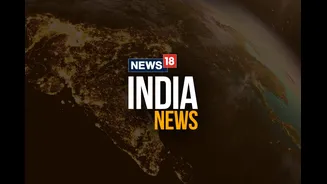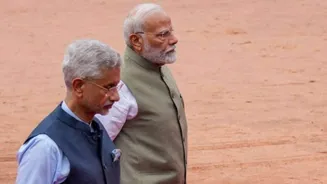Delve into 7 game-changing innovations by ISRO that reshaped the world! Explore the cosmic marvels within
Bangalore: The Indian Space Research Organisation (ISRO), India's pride and the powerhouse of cosmic
exploration, has quietly revolutionized the world with its ingenious innovations.

From cost-effective space missions to groundbreaking satellite technology, ISRO's contributions have touched lives in ways we often don't realize. Forget expensive Hollywood blockbusters depicting space travel; ISRO's real-life achievements are far more impressive and impactful.
Let's take a look at seven such inventions that have left their mark on the planet.
ISRO's journey began humbly, but with a sky-high vision. Dr. Vikram Sarabhai, the father of the Indian space program, understood that space technology held immense potential for national development.
From using rockets to study the atmosphere to aiming for lunar missions, ISRO has proven that ambition, coupled with frugal engineering, can conquer the stars. And its impact isn't just limited to scientific circles – it's woven into the fabric of everyday life for millions across the globe.
With each successful launch, they keep rising, and inspiring generations to come.
Cost-Effective Space Missions: The "Jugaad" Approach to Space
ISRO is world-renowned for its ability to achieve incredible feats with significantly lower budgets compared to other space agencies. This "jugaad" approach involves innovative problem-solving, using readily available resources, and optimizing existing technologies to achieve mission objectives.
The Mars Orbiter Mission (Mangalyaan), for instance, entered Martian orbit at a fraction of the cost of similar missions by other countries. This displayed their ingenious engineering skills and also made space exploration accessible to nations with limited resources.
This cost-effectiveness isn't just about saving money; it's about maximizing impact. It means that valuable resources can be channeled into other crucial areas like education, healthcare, and infrastructure development.
ISRO's frugal approach has forced other space agencies to rethink their strategies, pushing for more efficient and sustainable space exploration practices globally. Their commitment to resourcefulness is now serving as a guiding principle for organizations of all types.
Communication Satellites: Connecting a Nation
Imagine India without reliable communication networks. Before ISRO's INSAT series of communication satellites, television broadcasting was limited, telephone connectivity was sparse, and disaster warnings were slow to reach remote areas.
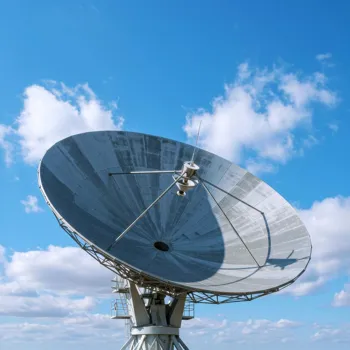
ISRO's INSAT satellites revolutionized communication in India, enabling widespread television access, connecting remote villages with telephone services, and providing crucial data for weather forecasting and disaster management.
These satellites have become indispensable tools for various sectors, from education and healthcare to agriculture and e-governance.
The impact goes beyond just connectivity. INSAT satellites have empowered communities, facilitated economic growth, and strengthened national security.
During natural disasters, these satellites provide vital information for rescue and relief efforts, saving countless lives. The success of the INSAT program has served as a model for other developing countries looking to improve their communication infrastructure and bridge the digital divide.
Remote Sensing Satellites: Eyes in the Sky for Resource Management
ISRO's remote sensing satellites, like the IRS series, provide invaluable data for monitoring and managing natural resources. These satellites capture images of the Earth's surface, providing information on agriculture, forestry, water resources, urban planning, and disaster monitoring.
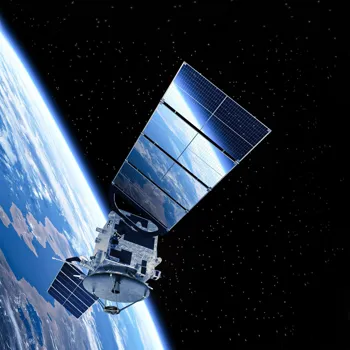
This data is used by government agencies, researchers, and farmers to make informed decisions about resource management and development planning. Farmers, for example, use satellite data to optimize irrigation, predict crop yields, and detect diseases early on.
The impact of remote sensing technology extends far beyond agriculture. It helps in monitoring deforestation, assessing water availability, and tracking urban growth.
During natural disasters like floods and cyclones, remote sensing data is invaluable for assessing damage, coordinating relief efforts, and planning for rehabilitation.
ISRO's remote sensing program has empowered communities to manage their resources sustainably and build resilience to environmental changes.
Launch Vehicle Technology: A Giant Leap for Self-Reliance
Developing indigenous launch vehicle technology, like the Polar Satellite Launch Vehicle (PSLV) and the Geosynchronous Satellite Launch Vehicle (GSLV), was crucial for India's self-reliance in space.
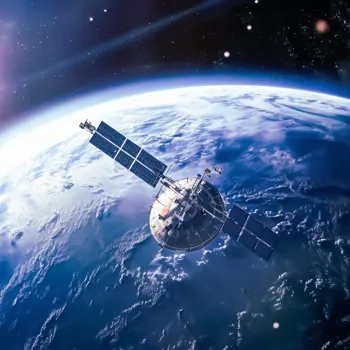
These launch vehicles allow ISRO to launch its own satellites into orbit, reducing dependence on foreign space agencies. The PSLV, in particular, has become a workhorse for launching both Indian and foreign satellites, earning ISRO a reputation as a reliable and cost-effective launch provider.
One of the best achievements so far.
The development of indigenous launch vehicle technology has not only boosted India's space capabilities but has also created opportunities for commercial partnerships.
ISRO now offers launch services to other countries, generating revenue and strengthening India's position in the global space market. The success of the PSLV and GSLV programs has inspired a new generation of engineers and scientists in India to pursue careers in space technology.
NavIC: India's Own Navigation System
NavIC (Navigation with Indian Constellation), also known as the Indian Regional Navigation Satellite System (IRNSS), is ISRO's independent regional navigation satellite system. It provides accurate and reliable positioning, navigation, and timing services over India and its surrounding regions.
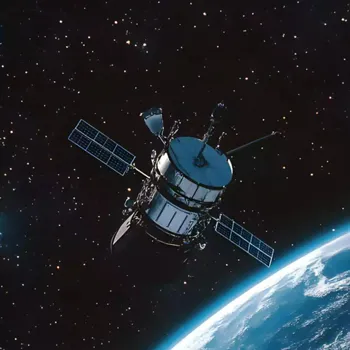
NavIC is used in a variety of applications, including transportation, disaster management, and location-based services.
Unlike GPS, which is controlled by the United States, NavIC is an independent system owned and operated by India.
This gives India strategic autonomy and ensures that it has access to critical navigation services even in times of conflict. NavIC is also more accurate than GPS in some areas, particularly in urban canyons and mountainous regions.
Space-Based Disaster Management: Saving Lives from Above
ISRO has leveraged its satellite technology to develop effective space-based disaster management systems. Satellites provide real-time data for monitoring cyclones, floods, and other natural disasters, enabling timely warnings and effective response efforts.
ISRO's disaster management programs have saved countless lives and reduced the impact of natural disasters on vulnerable communities. They even helped during the recent COVID times.
ISRO works closely with government agencies and international organizations to share disaster-related data and expertise. This collaboration ensures that the benefits of space technology are available to all countries, particularly those most vulnerable to natural disasters.
ISRO's disaster management programs are a testament to its commitment to using space technology for the benefit of humanity.
Technology Transfer and Spin-offs: Space Tech for Everyday Life
Many technologies developed by ISRO for space missions have found applications in other fields, benefiting industries and consumers. These "spin-offs" include advanced materials, communication technologies, and medical devices.
For example, the lightweight materials developed for rockets are now used in prosthetic limbs and high-performance sports equipment.
ISRO encourages technology transfer to Indian companies, promoting innovation and economic growth.
These spin-offs not only create new products and services but also generate employment opportunities. ISRO's commitment to technology transfer ensures that the benefits of space technology reach a wider audience, improving lives and driving economic development.
ISRO's journey has been one of continuous innovation and unwavering dedication to serving the nation. From frugal engineering to groundbreaking satellite technology, ISRO's contributions have transformed India and inspired the world.
As ISRO continues to push the boundaries of space exploration, it promises to bring even more incredible innovations that will change our lives forever.
AI Generated Content. Glance/InMobi shall have no liability for the content




